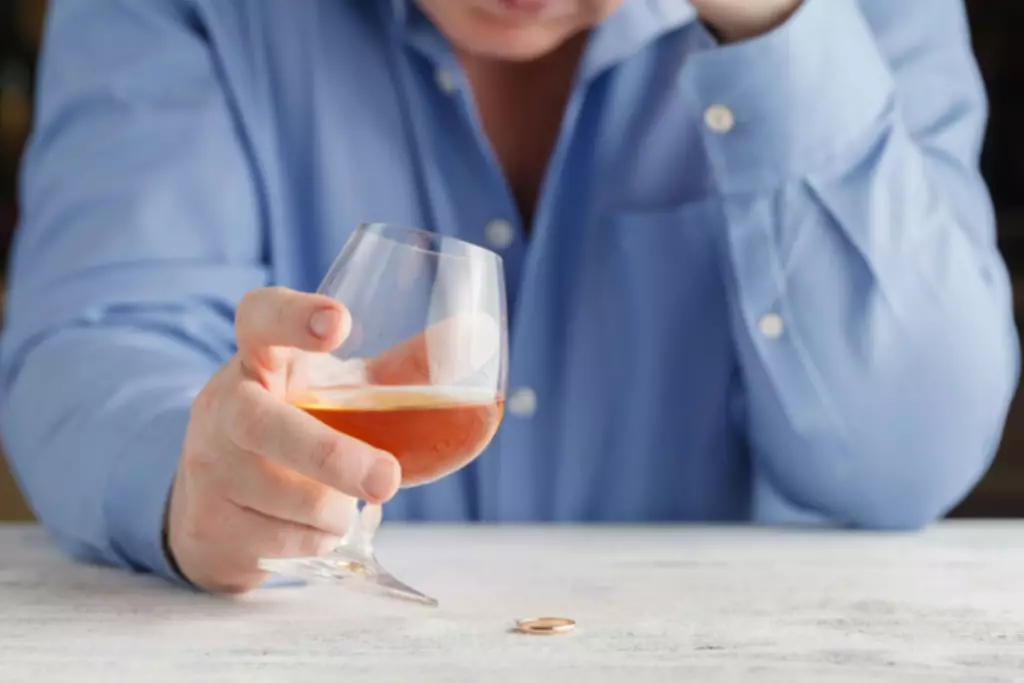Content
Once a person’s blood-alcohol levels go above .05% to .055%, alcohol’s negative effects start to increase. So feelings of calm, happiness, and relaxation start to turn into depression, irritability, and disorientation. At around .08% to .09%, sense of balance is off and motor skills are impaired. Some people may also begin vomiting https://ecosoberhouse.com/ at this level due to excess alcohol in the blood and the body’s inability to metabolize the alcohol fast enough. In the United States, someone is considered to be legally intoxicated and prohibited from driving a vehicle if their BAC level is 0.08% or greater. Consuming large amounts of water has faced its own backlash.

However, this exact mechanism may increase your risk of bleeding from strokes. It is especially true when you drink alcohol in large quantities. Alcohol and blood thinners can exacerbate the effects of each one, drastically increasing the risk of bruising, bleeding, and hemorrhagic stroke.
Signs of Alcohol Abuse
Kendra frequently misuses alcohol – it’s something she’s been doing for a while now. Her blood returns to normal fairly quickly after the alcohol leaves her system. The sweeping majority of alcohol treatment centers will require participants to enter into treatment alcohol and substance-free. Entering into treatment while still actively using means that you will not be able to participate in your recovery actively and can trigger other participants in your program. Below are some answers to common questions about the effects of alcohol on the cardiovascular system. Alcohol thins the blood by inhibiting bone marrow platelet production.

For healthy adults, doctors recommend limiting alcohol intake to a maximum of two drinks a day for males and one drink a day for females. Mixing alcohol and Coumadin is known to affect how Coumadin works in your body. It can make Coumadin more active and increase the risk of bleeding.
Long-Term Side Effects of Alcohol on Your Blood
A combination of medical advice from a health care provider, social, and family support is also essential. Mixing alcohol and Brilinta could lead to increased dizziness. Someone using alcohol while taking Brilinta should speak with their doctor about the risks that are specific to their situation. Much like Pradaxa, alcohol also increases the effects of Arixtra. This is doubly dangerous, as you are more likely to have an injury while intoxicated and are at higher risk for severe bleeding.
Why am I pooping blood after drinking alcohol?
Consuming too much alcohol may tear away at tissue and cause it to become more sensitive. These tears, called Mallory-Weiss tears, can cause significant bleeding and may lead to pooping blood. The tears can form anywhere in the digestive tract, including an individual's intestines as well as their throat.
With thinner blood, you may also experience more nosebleeds as well as more bleeding of gums when brushing your teeth. You’ll get an email weekly with any new questions answered by this doctor. Since you’re not logged in, check your email after you submit to confirm. When you drink, you might get tipsy and lose your balance, too. That could be very dangerous, especially if you hit your head.
Does Alcohol Thin Your Blood? Know The Risks
These cells are sticky and cluster together and work to stop bleeding. Platelets also deliver proteins called clotting factors that create a plug to close the hole. The AlcoholicsAnonymous.com helpline is free, private, and confidential. We do not receive any commission or fee that is dependent upon which treatment provider a caller chooses. The platelets make your blood clot, so bleeding stops when you suffer an injury. The platelets in Lily’s body immediately get to work clotting the blood to stop the bleeding.
- Anticoagulants slow your body’s making of clots, while antiplatelet medicines help prevent platelets from clumping and creating a clot.
- When a clot stops blood flow to your heart, it can lead to a heart attack.
- Some research finds that alcohol increases levels of high-density lipoproteins (HDL, aka “good cholesterol”).
Does alcohol have beneficial effects by thinning your blood down? More watery blood may be better for your circulatory system and heart, it says. Some research-based evidence suggests that people who have thicker blood may be at higher risk of developing a stroke or having a heart attack. The blood is viscous, or thicker, and higher viscosity makes it more difficult for a fluid to flow; think of honey or thickened oil. When blood is thick enough not to flow easily, your heart has to work that much harder to move it throughout your body.
Alcohol can also interfere with the activity of certain enzymes involved in blood clotting, such as thrombin.
Some medical professionals say one to two drinks a day may be fine for healthy individuals, but anything more may be risky. Because alcohol acts to thin your blood, it’s never a good idea to drink too much of it while you are taking prescribed blood thinners. It’s even worse to mix alcohol, a prescribed blood thinner, is alcohol a blood thinner and Aspirin or Advil. Overdoing the alcohol, taking aspirin, and taking your blood thinner as prescribed can lead to internal bleeding. If you were to have an accident, even a normally minor one, and suffer injuries, you may experience excessive bleeding, which may require emergency medical care or surgery.
If you or a loved one suspects you are suffering from alcohol use disorder, call and speak with an alcohol addiction treatment center as soon as possible. These changes in the blood aren’t dangerous for most people, but those on anticoagulant medications (blood thinners) should limit their alcohol intake to one standard drink per day. Blood thinners can be particularly dangerous for people with alcohol addiction. They often find it more difficult to restrict their alcohol use to a moderate amount or avoid combining alcohol with blood thinners.
Alcohol consumption is a common practice in the United States, with millions of adults reporting drinking alcohol each year. According to the Mayo Clinic, women should have no more than one drink per day, and up to two drinks daily is the recommended allowance for men. Despite these warnings, alcohol consumption continues to be prevalent in the United States. If you or someone you love is struggling with alcohol addiction, professional treatment at a licensed rehab facility can help. The Recovery Village Ridgefield is a premier addiction treatment center in Ridgefield, Washington, that offers detox, inpatient and outpatient programs for alcohol use disorders.

Hemorrhagic strokes are life-threatening conditions in which blood vessels in the brain rupture. There are many potential causes of hemorrhagic strokes, including uncontrolled high blood pressure and overuse of blood thinners. It’s also important to note that heavy and chronic alcohol consumption can have more lasting effects on the blood clotting process even when not drinking. Yet because of this effect, drinking alcohol could potentially increase your risk for the bleeding type of strokes — especially when you drink it in large quantities.
Side effects of mixing alcohol and blood thinners
We are dedicated to transforming the despair of addiction into a purposeful life of confidence, self-respect and happiness. We want to give recovering addicts the tools to return to the outside world completely substance-free and successful. But having more than three alcoholic drinks daily could increase your risk for a type of stroke caused by bleeding in the brain (hemorrhagic strokes). A 2013 study of almost 60,000 people found no difference in the risk of blood clots between wine or beer drinkers. Occasional, moderate alcohol use should be safe for most people who are taking blood thinners.
Does alcohol make you bleed more?
Alcohol can also make a female's period heavier or cause them to bleed more during their menstrual cycle. Since alcohol is a blood thinner, it increases estrogen levels. Therefore, leading to a heavier period.